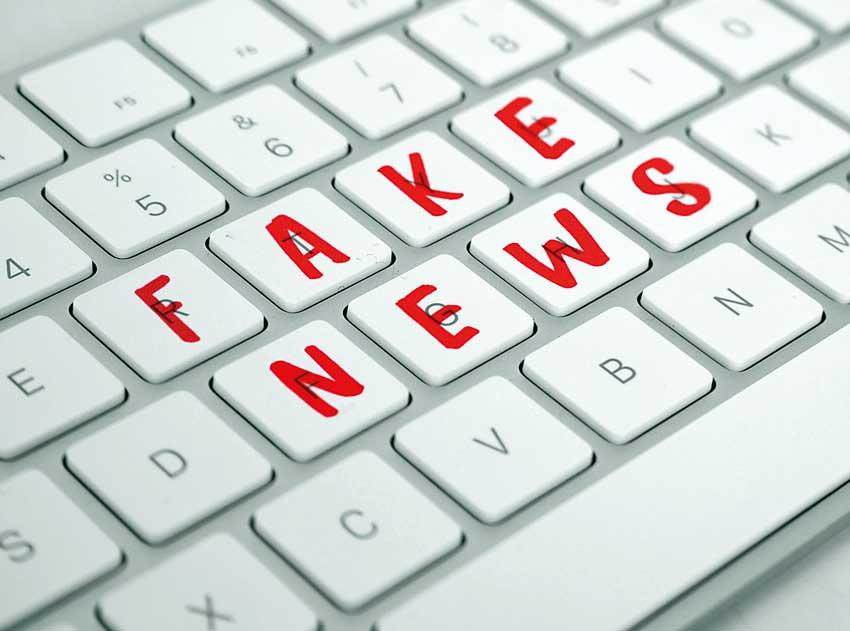Reply To:
Name - Reply Comment

In retrospect, developers back then made programmes (the throwback term for apps) with noble intentions in mind. Zuck wanted a platform for friends to get in touch with each other; Jack Dorsey, Twitter’s founder and CEO, envisioned a way to communicate effectively and direct to the point
Where are the traffic enforcers? Good luck with that. Introducing rules of use is one thing, implementing them is another. And cleaning up the mess is an entirely different undertaking
 Facebook and Twitter must be having field days. No — they are having such. While the most prominent bit of news involving them was the flagging of Donald Trump’s tweet falsely claiming victory on election day itself, one can just imagine the shenanigans they have to deal with in these unprecedented, extremely polarising American exercise of democracy.
Facebook and Twitter must be having field days. No — they are having such. While the most prominent bit of news involving them was the flagging of Donald Trump’s tweet falsely claiming victory on election day itself, one can just imagine the shenanigans they have to deal with in these unprecedented, extremely polarising American exercise of democracy.
Mark Zuckerberg, in particular, may not have predicted the kind of monster he created in his dorm room 16 years ago. At that time, the Internet was practically still just opening up to a wider audience (remember dial-up?) and — let’s face it — people were more restrained and, to a certain extent, civilized even, in the context that ‘trolls’ were known at that time as those little dolls with 80s-style punk rock hair.
In retrospect, developers back then made programmes (the throwback term for apps) with noble intentions in mind. Zuck wanted a platform for friends to get in touch with each other; Jack Dorsey, Twitter’s founder and CEO, envisioned a way to communicate effectively and direct to the point.
Today both of them, alongside other Big Tech honchos, are under fire for what can fairly be deemed as a mishandling of the situation. They could have hiked up their efforts, or lack thereof, by learning from the ‘prototypes’ such as Friendster before them.
Perhaps my distaste for social media did take root there. Indeed, while not having a Friendster account, my friends routinely showed me their feeds, and certain stuff I saw on them were amusing at best, cringe-worthy at worst (users weren’t as aggressive as today’s bunch; if it were today, cringe-worthy would be at best, and worst would be ‘beyond infuriating’). You know something’s wrong when you personally know someone spewing falsehoods, no matter how painful that term sounds, online; in particular, someone claiming to be in some posh place nowhere near home when I actually spoke to said person just an hour ago… on a landline. The best I could muster to that friend showing me that ‘post’ was a smirk.
Humans, by nature, want to look good. Are you familiar with the style question of would you rather ‘look good or feel good’? To spin it in different terms, can you act and speak like a decent person even if you’re all dapper in a suit or evening gown? I’d rather feel good, the evidence of which is that you won’t find a single tie in my wardrobe.
Yes, the purpose of social media is to leverage its reach — it’s just that the Internet evolved and devolved at the same time into a high-tech playground for just anything imaginable that the lines between taking advantage and exploitation have been blurred, if not completely gone in some areas. To put that into perspective, a study had revealed that bad bots grew by almost 20 per cent last year, and they now account for about a quarter of Internet traffic.
Where are the traffic enforcers? Good luck with that. Introducing rules of use is one thing, implementing them is another. And cleaning up the mess is an entirely different undertaking. Try doing that to the over 330 million Twitter accounts; if you feel really hard-working, proceed to police the more than 2.7 billion Facebook users.
Still want more? We haven’t even thrown into the discussion TikTok’s 850 million, Instagram’s one billion, Messenger’s 1.3 billion and WhatApp’s two billion, the last three of which are Facebook-owned, so you can just imagine the odds staring Zuck in the eye.
Casual users would shrug this off, but this is, matter of factly, a real issue with serious repercussions: Misinformation. Stoking hate. Sexual exploitation, inviting or otherwise. I can go on and on yet my words would still ring hollow — that’s because people, by nature again, would rather stay away from problems. That felt so awkward to say since, ironically, since it’s also us who create that.
If there’s one thing Trump is right about — and will always be— it’s fake news. I’ll give him that. — [email protected]
Courtesy Khaleejtimes